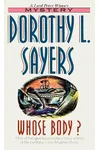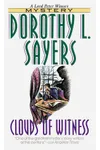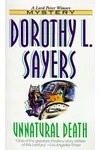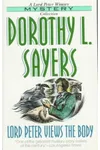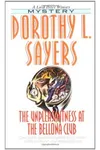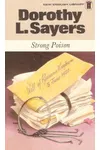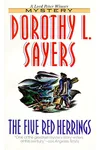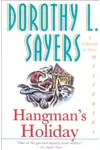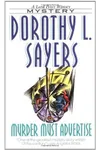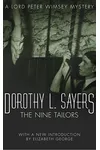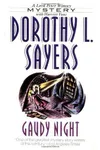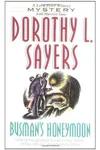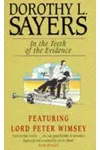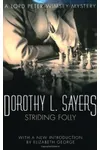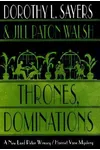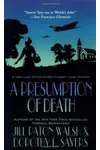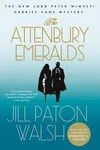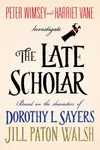Step into the charmingly cunning world of Lord Peter Wimsey, where a dapper aristocrat solves baffling mysteries with wit, wine, and a touch of wartime melancholy. Created by Dorothy L. Sayers, this detective series whisks readers to early 20th century Britain, blending intricate puzzles with a vivid portrait of a society caught between two world wars. Whether you’re a fan of classic whodunits or crave a hero with depth, Wimsey’s adventures are a delightful escape.
With his straw-colored hair, monocle, and penchant for rare books, Lord Peter Wimsey is no ordinary sleuth. His cases, often murders, unravel with intellectual flair, while his evolving romance with mystery writer Harriet Vane adds emotional richness. Ready to meet a detective who’s equal parts Sherlock and romantic? Let’s dive in!
How Peter Wimsey Began
Dorothy L. Sayers, an Oxford-educated scholar with a knack for storytelling, introduced Lord Peter Wimsey in 1923 with Whose Body?. A former copywriter who penned the iconic Guinness zoo animal ads, Sayers drew inspiration from her love of puzzles and her observations of British class dynamics. Wimsey, a second son of the Duke of Denver born in 1890, emerged as a gentleman detective shaped by his World War I shellshock and a desire to outwit crime for sport.
Sayers’ sharp intellect and wit infused Wimsey with complexity, making him more than a Bertie Wooster-esque fop. Over two decades, she crafted 11 novels and numerous short stories, later joined by Jill Paton Walsh, who continued the series after Sayers’ death in 1957. The result? A timeless sleuth who feels as real as the cobblestone streets he treads.
The Heart of Peter Wimsey
The series shines in its key novels, each a masterclass in mystery. Whose Body? (1923) kicks off with a naked corpse in a bathtub, sporting only pince-nez spectacles, as Wimsey untangles a financier’s disappearance. Strong Poison (1930) introduces Harriet Vane, a novelist accused of poisoning her lover, sparking Wimsey’s quest to prove her innocence—and win her heart. Gaudy Night (1935) sees Harriet investigating a poison-pen scandal at Oxford, with Wimsey’s support, blending romance and intellectual intrigue. Busman’s Honeymoon (1937) delivers a honeymoon marred by a corpse, cementing the duo’s crime-solving chemistry.
Set in the 1920s and 1930s, the series captures Britain’s shifting social landscape—aristocratic grandeur, post-war trauma, and emerging gender roles. Sayers’ prose sparkles with humor and literary allusions, while themes of justice, morality, and love deepen the stakes. Wimsey’s shellshock and Harriet’s independence add layers, making their partnership a standout in detective fiction.
From foggy London clubs to rural villages, the settings are as vivid as the characters. Sayers’ advertising background shines in Murder Must Advertise (1933), a witty exposé of 1930s ad agencies, while The Nine Tailors (1934) weaves bell-ringing lore into a haunting village mystery. Each book is a standalone gem, yet together they trace Wimsey’s growth from dilettante to devoted husband.
Why Peter Wimsey Resonates
Lord Peter Wimsey endures as a cornerstone of the Golden Age of detective fiction, rivaling Agatha Christie’s Poirot. Sayers’ blend of cerebral puzzles and emotional depth set a new standard, influencing writers and delighting fans. The series’ exploration of class, gender, and morality remains relevant, while Wimsey’s charm—think James Bond with a conscience—keeps readers hooked.
Adaptations, like the 1970s TV series starring Ian Carmichael and 1987’s BBC dramas with Edward Petherbridge, brought Wimsey to life, cementing his cultural footprint. Fans on platforms like Goodreads praise the series’ wit and Harriet’s feminist edge, proving its timeless appeal. For mystery lovers, Wimsey is a gateway to a bygone era with modern resonance.
- Publication Years: 1923–1937 (Sayers); 1998–2013 (Paton Walsh)
- Number of Books: 15 (11 novels, 4 short story collections)
- Notable Adaptations: 1970s TV series, 1987 BBC dramas
Grab Whose Body? and dive into Lord Peter Wimsey’s world of clever clues and captivating romance. Your next favorite mystery awaits!
